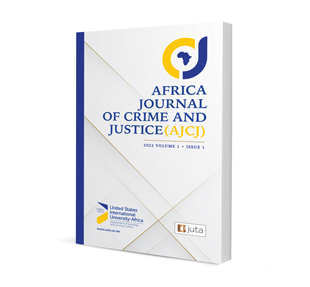Alternative to Prosecution in Criminal Law: A Case for Plea Agreements in Corporate Crime

Alternative to Prosecution in Criminal Law: A Case for Plea Agreements in Corporate Crime
Authors: Lillian Akinyi Okumu and Henry K Murigi
ISSN: 2958-8162
Affiliations: Office of Director Public Prosecutions, Kenya; Office of Director Public Prosecutions, Kenya
Source: Africa Journal of Crime and Justice 2022, p. 55 – 77
https://doi.org/10.47348/AJCJ/2022/a3
Abstract
The legal order in Kenya abhors ethereal companies from engaging in serious corporate transactions with government since therein lies the possibility for economic and corporate crime to thrive. Those who commit economic crime and embezzle public funds often attempt to hide behind the legitimate legal fiction of company law. This is part of the reason why corruption is rampant. This article seeks to accentuate the reality of corporate criminal responsibility and to propose a way to ensure that corporates embrace alternative dispute resolution (ADR) to settle criminal cases. The article highlights the schools of thought on the use of ADR in fighting crime and responds to the objections to the use of ADR in resolving corporate crime. This article further suggests that these principles engraved in the criminal-law tradition must be reconsidered with appropriate responses to corporate crime.